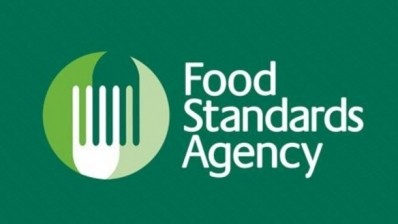FSA budget cuts: what it means for food safety

Key points
The latest round of savage budget cuts imposed by the government on both the Food Standards Agency (FSA) and local authorities (LAs) could have a seriously damaging impact on their ability to ensure high levels of food safety and hygiene are maintained across the food business operations (FBOs) in the UK.
Chancellor George Osborne’s spending review, published in November, confirmed the FSA budget would be frozen at £85.4M a year until 2020. This equates to a cut in real terms of £6M or 7% to its budget during that period. And this is not the first budget cut the food regulator has seen. Its government funding fell by £22M from 2013 – at the time of the horsemeat scandal – to the end of 2015/16.
The FSA will have to review what activities it can continue to carry out and how it delivers on them. Combined with the swingeing cuts on local authorities that enforce the food regulations, as well as dramatic slashing to the Department for Environment, Food and Rural Affairs’ (DEFRA’s) budget, it threatens devastating consequences for food safety.
As far back as 2013, Andrew Rhodes, the FSA’s then chief operating officer, speaking at Food Manufacture’s annual food safety conference moved to reassure the industry that fewer resources would not automatically lead to more risk for consumers. However, three years later the FSA is less sanguine after the latest round of budget cuts, telling Food Manufacture that the wider environment was “challenging” and would mean cuts in front-line delivery and administration until March 2020.
“This cut requires us to make further savings over the next four years,” says an FSA spokesman. “The wider environment we work in will also remain extremely challenging, particularly as LA funding is reduced and other government departments face similar pressures.”
The FSA spends its money on a range of services in its role as regulator. According to the budget for 2015/16 it will spend £55.9M on official controls for meat; £5.8M on campylobacter research; £4.1M on providing support to LAs; £2.9M on intelligence on the global food chain and £1.3M on nutrition (Northern Ireland). Any of these services could face cuts during the 2016/17 budget, which will be set at the open meeting of the FSA Board next month (March).
The setting up of the national Food Crime Unit (FCU) at the end of 2014 in the wake of the horsemeat scandal is a fundamental tool to fight food crime and ensure food safety. But Professor Chris Elliott, who was responsible for the review which proposed the unit, has already questioned its long-term viability without additional funding on top of the current £2M a year.
Barbara Gallani, the Food and Drink Federation’s chief scientist and policy and sustainability director, refused to be drawn on the specific impacts of FSA cuts. However, she did say as a regulatory body it should be “well-resourced” to help protect consumers and the reputation of the UK food market.
“The FDF has valued the close co-operation with the FSA on incident prevention, supply chains and regulatory issues to ensure that consumers can have full confidence in the food they eat,” says Gallani. “We have been publicly supporting a strong, evidenced-based FSA, with the resources required to maintain its regulatory expertise and to understand the food and drink sector. We will continue to work with the FSA as it reviews its activities.”
So what are the effects likely to be and where will cuts be made? The FSA has started 2016 in discussions and has confirmed this will be an on-going process.
Jenny Morris, principal policy officer at the Chartered Institute of Environmental Health, which represents LA environmental health officers (EHOs), says it is highly speculative where the cuts will fall. “The one thing that is very clear is that budgets are going down,” says Morris. “There are two parts to this – FSA as the food regulator, which does the strategy; and then the local authorities, which do the delivery. There is going to be less money, fewer people and there are going to have to be hard choices.”
Under European law the FSA, as the competent authority in the UK, is expected to maintain pan-Europe standards for food safety. This will now have to be done with fewer resources. The EU legislation requires food businesses to take responsibility for ensuring the safety of the food they produce and it is the FSA’s job to police this.
One way of squaring the circle of maintaining food safety standards with diminishing resources is for the FSA and LAs to focus their attention on areas of greatest risk. In such a risk-based regime, greater emphasis will be placed on the self-regulation of food businesses, in a process known as ‘earned autonomy’.
There have already been hints that this might already be on the cards. Last July, food minister George Eustice told the British Meat Processors Association conference in London that the burden of inspections on food businesses would be reduced as part of its new strategy.
And in November 2015, the FSA published official statistics on enforcement activity by LAs across the UK for the year 2014/15. These showed a trend of increasing compliance, with 93% of businesses compliant with hygiene laws. The FSA put this success down to LAs targeting their inspections at higher-risk food businesses.
“It could be that businesses that are known to be managing the issues of food safety well will be given more credit for doing this,” says Morris. “If that business is prepared to make its results available to the regulator then the regulator should say you are doing alright.”
This could also mean that larger companies might use independent audits of their businesses as evidence of meeting their obligations in food safety, hygiene and cleaning. This approach would take pressure off EHOs on enforcement and reduce the number of inspection visits they have to make.
Obviously, for large food business and manufacturers this cost can be absorbed. But smaller businesses may struggle and LAs and FSA could be looked to provide some support. Also any FBOs offering independent audits as evidence of compliance would probably have to provide evidence of the competency of third-party auditors of their premises. But Kary Yates, team leader for product recall and crisis management at insurance broker Aon, says this presents an opportunity for food manufacturers.
“With the remnants of ‘Horsegate’ and the subsequent Elliott Review still fresh in the mind, a European Commission proposal to review HACCP [hazard analysis critical control point procedures] has re-ignited the debate about whether new industry standards are needed,” she says. “It has already become clear that the enforced testing regime recommended by the Elliott Review will not be supported by government, and as such manufacturers have an opportunity to design and implement more appropriate tests that properly reflect the risks within their own business.”
Despite its shrunken budget, the FSA will remain in charge of food regulation. It will continue to work closely with LAs and provide support.
However, LAs are independent and implement policies mainly based on their legal obligations and what is needed locally. The fear is that food safety management – already considered by some to be a ‘Cinderella’ service – will slip even further down their priority list.
The Local Government Association has already predicted this. A recent analysis revealed that councils had already made cost savings of £20M. It says that services, such as caring for the elderly, protecting children, collecting bins, filling potholes and maintaining parks and green spaces, will have to take priority.
As financial resources are increasingly squeezed, it seems inevitable that the clampdown on food fraud and safety will need to become more intelligence-led. This will mean that greater emphasis will be placed on the FCU to make these intelligence decisions.
“Statistics will look at food hygiene ratings; what businesses have been prosecuted and what businesses have had notice served on them,” Morris predicts. “If a business performs badly in food it is probably failing in other areas, such as not paying tax on time. I think that is where the wider thinking is.”
She also expects consumer pressure to play an increasingly important role in the future in putting pressure on LAs to take action and driving up food hygiene in FBOs.
“We have an early example of this with the Food Hygiene Rating Scheme. If you know what the business is like, then consumers will make decisions about where to shop and what to eat. There is a lot of thinking about how you might extend that,” says Morris.
Putting greater responsibility on trade associations for managing food hygiene standards could be another option, she suggests. This has been happening in the Netherlands for some time under a levy system, she adds. And then there is the option for LAs to share expertise and resources far more than happens at the moment.
Inevitably, both the FSA and LAs will have to work more efficiently and within strict budgets. And tough decisions are going to have to be made because of the pressure on resources.
But, what is also certain is that manufacturers are facing having to adopt new ways of working too. As Morris says: “The one thing I am sure about is it will be different.”













